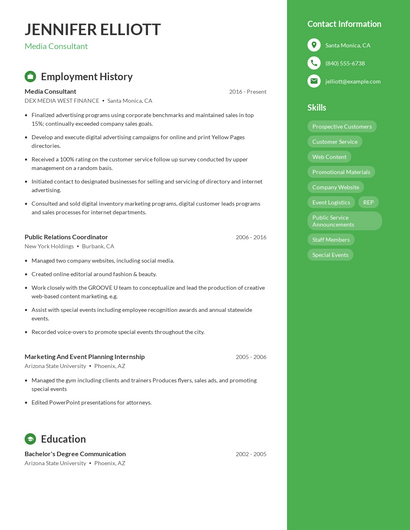
Outsourcing staff can have many advantages for your company. It can lower your costs while also giving you the flexibility and control you need. For instance, you can have the flexibility to hire extra network support when you need it, without worrying about your employees being overworked. You can also reinvest cost savings into your business.
Outsourcing staff comes with its own set of disadvantages
Outsourcing is an excellent option for businesses looking to reduce their overhead costs. There are some downsides. These include production inefficiency, security risks, and production inefficiency. Most users of an Outsourcing quiz failed to pass it.

Costs
Understanding the costs involved is essential when you decide to outsource business functions. The costs can be broken down into direct and indirect, which can include salaries, equipment administration, and services internal. Outsourcing can help companies cut unnecessary costs, such as the cost of recruiting and training employees. Outsourcing vendors can also handle costs related to payroll, taxes, and equipment. They can also handle the social costs of insurance, software and hardware. Companies can also reduce their personnel costs by outsourcing, especially when they contract with dedicated teams who work for set hours.
Reliability
A business's reliability can be a problem. Outsourced employees must be trustworthy and have good work ethics. If they don't, they could become unreliable or leave for a job that is more lucrative.
Signature of an NDA
When outsourcing staff, it's important to sign an NDA before allowing them to access your sensitive data. An NDA protects you business against employees sharing confidential information with competitors. Even if your company doesn't outsource customer service or IT needs to other people, it's important that you sign an NDA when you work with freelancers and contractors.

Terms and conditions for payment
Outsourcing payroll services to a third party can help you cut costs and give your clients a longer term. Before you consider this option, you should weigh the benefits and drawbacks. First, you will need to have a longer billing cycle. This will add to the complexity in your accounting software. It will require you to manage the risk that nonpayment may occur. While it's a popular practice in business, it can be risky.
FAQ
How do I set up an LLC to consult?
First, determine what you are looking to do as service provider. Then, make sure that you are qualified for these services. You might find someone who does the same thing you are interested in and learn from them.
Once you know what you want to provide, then you should try to figure out where your target market is. If there aren't enough of them, you may need to create them.
Next, you will need to decide if you want to start your own business or hire others.
A license from the state could be required to start your own consulting business. However, this can take some time and require legal fees.
What can I expect from my consultant?
You should hear back from your chosen consultant within a few days. They will typically ask for information about the company, such as its mission, goals. products and services. budget. They will then send you a proposal that outlines the scope of work and estimates timeframe, fees, deliverables, milestones and other details.
If all goes according to plan, the two sides will sign a written deal. The terms of the contract will depend on the type of relationship between the two parties (e.g., employer-employee, employer-independent contractor).
If all goes well, the consultant will start working immediately. S/he will have access to your internal documents and resources, and you'll have access to his/her skills and knowledge.
You shouldn't assume, however, that every consultant is an expert in all areas. It takes practice and hard work to become an expert in the field you are consulting. Your consultant should not assume that they know everything about you business.
How do I choose a consultant?
Three main factors should be considered:
-
Experience - How many years of experience is this consultant? Is she a beginner, intermediate, advanced, expert, or something else? Does her resume show that she has the necessary skills and knowledge?
-
Education – What did this person learn at school? Did he/she pursue any relevant courses once he/she graduated? Is there evidence that he/she learned from the writing style?
-
Personality - Are we attracted to this person? Would we hire him/her to be our employee?
-
These questions help to decide if the consultant suits our needs. If you do not have the answer, it is worth interviewing the candidate to find out more.
What does it cost to hire an expert?
The cost to hire a consultant depends on many factors. These include:
-
Project size
-
Time frame
-
Scope and nature of work
-
Fees
-
Deliverables
-
Other factors to consider include location, experience, and other considerations.
What contracts are available for consultants?
Most consultants sign standard employment agreements when hired. These agreements define the terms of the agreement, including how long the consultant is expected to work for the client as well as what he/she should be paid.
Contracts will also outline the areas of expertise and compensation for the consultant. An agreement could state, for example, that the consultant will offer training sessions, workshops and webinars.
Other times, the consultant simply agrees to complete specific tasks within a specified timeframe.
In addition to standard employment agreements, many consultants also sign independent contractor agreements. These agreements allow consultants to work independently while still receiving payment.
How is consulting different from freelancing
Freelancers are individuals who work for themselves and offer their services to clients. They typically charge hourly rates based on time spent working on a client's project. Consultants often work for companies or agencies that employ them. Their salaries are often paid monthly, or annually.
Because they have control over their work hours and can set their prices, freelancers are more flexible than consultants. But consultants have more benefits like vacation days, health insurance and retirement plans.
How much should a consultant charge?
It all depends upon what you offer. If you are offering services for free, it is not worth charging anything. But if your services or products are for sale, you will need to establish prices that reflect their value.
If you are offering low-quality services, you don't have much to sell. You are not worth anything, so why should anyone pay you anything.
If you're providing high-quality services you might ask for a greater price. Because people are aware of the value you provide, they will be more willing to pay you a higher rate. Also, clients who purchase multiple packages from your company may get discounts.
Statistics
- According to IBISWorld, revenues in the consulting industry will exceed $261 billion in 2020. (nerdwallet.com)
- WHY choose me: Why your ideal client should choose you (ex: 10 years of experience and 6-week program has helped over 20 clients boost their sales by an average of 33% in 6 months). (consultingsuccess.com)
- Over 50% of consultants get their first consulting client through a referral from their network. (consultingsuccess.com)
- So, if you help your clients increase their sales by 33%, then use a word like “revolution” instead of “increase.” (consultingsuccess.com)
- On average, your program increases the sales team's performance by 33%. (consultingsuccess.com)
External Links
How To
How do you find the best consultant?
It is important to first ask yourself what you expect from a consultant when searching for one. You should know exactly what your expectations are before you start searching for someone. Make a list of everything you think you might need from a consultant. This list could include technical expertise, project management skills, communication skills and availability. After you have listed your requirements, it might be a good idea to ask colleagues and friends for their recommendations. Ask your friends and colleagues if they have had bad experiences with consultants in the past. Compare their recommendations with yours. If you don't have any recommendations, try doing some research online. Many websites allow people to post reviews about their work experience, including Angie's List and Indeed. Take a look at comments and ratings from others, and use that data to find potential candidates. Once you have a shortlist, be sure to contact potential candidates directly to schedule an interview. During the interview, you should talk through your requirements and ask them to explain how they can help you achieve those goals. It doesn't really matter if they were recommended; as long as they understand your business objectives, they will be able to show how they could help you achieve them.